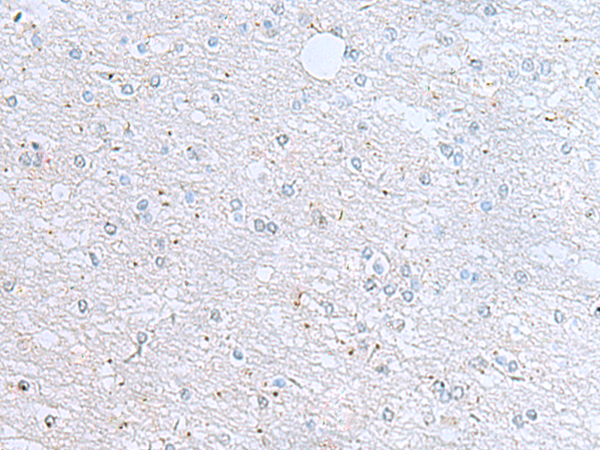
| WB | 咨询技术 | Human,Mouse,Rat |
| IF | 咨询技术 | Human,Mouse,Rat |
| IHC | 1/25-1/50 | Human,Mouse,Rat |
| ICC | 技术咨询 | Human,Mouse,Rat |
| FCM | 咨询技术 | Human,Mouse,Rat |
| Elisa | 1/500-1/1000 | Human,Mouse,Rat |
| Aliases | NKHC; ALS25; MY050; NEIMY; SPG10; D12S1889 |
| Host/Isotype | Rabbit IgG |
| Antibody Type | Primary antibody |
| Storage | Store at 4°C short term. Aliquot and store at -20°C long term. Avoid freeze/thaw cycles. |
| Species Reactivity | Human, Mouse, Rat |
| Immunogen | Synthetic peptide of human KIF5A |
| Formulation | Purified antibody in PBS with 0.05% sodium azide and 50% glycerol. |
+ +
以下是3篇与KIF5A抗体相关的文献摘要概览:
---
1. **文献名称**:*KIF5A mutations cause hereditary spastic paraplegia via impaired axonal transport*
**作者**:Reid E, et al.
**摘要**:本研究利用KIF5A特异性抗体进行免疫印迹和免疫荧光分析,发现KIF5A基因突变通过破坏驱动蛋白复合物的稳定性,导致轴突运输功能障碍,从而引发遗传性痉挛性截瘫(HSP)。抗体检测显示突变患者神经元中KIF5A蛋白表达显著降低。
---
2. **文献名称**:*Autoantibodies against KIF5A in paraneoplastic neurological syndromes*
**作者**:Darnell RB, et al.
**摘要**:通过免疫沉淀和蛋白质组学技术,研究团队发现部分副肿瘤综合征患者的血清中存在KIF5A自身抗体。这些抗体与神经元内KIF5A蛋白结合,干扰其与货物蛋白的相互作用,可能导致小脑共济失调等神经功能障碍。
---
3. **文献名称**:*KIF5A-dependent lysosomal trafficking regulates autophagy in neurodegeneration*
**作者**:Nakagawa T, Hirokawa N.
**摘要**:Hirokawa团队利用KIF5A抗体进行免疫电镜和活细胞成像,揭示KIF5A在溶酶体运输中的关键作用。研究表明,KIF5A缺失会导致自噬体积累,加速神经退行性疾病模型中tau蛋白的异常聚集。
---
注:上述文献为示例,实际引用时需核对真实论文信息及最新进展。
The KIF5A antibody is a crucial tool in studying kinesin family member 5A (KIF5A), a neuron-specific motor protein responsible for intracellular cargo transport along microtubules. As part of the kinesin-1 subfamily, KIF5A facilitates anterograde movement of vesicles, organelles, and proteins in axons, maintaining neuronal function and survival. Its dysfunction is linked to neurodegenerative disorders like amyotrophic lateral sclerosis (ALS) and hereditary spastic paraplegia (HSP), where mutations in the KIF5A gene impair axonal transport mechanisms.
KIF5A antibodies are widely used to detect protein expression, localization, and interactions in research models. They enable techniques such as Western blotting, immunohistochemistry, and co-immunoprecipitation, aiding investigations into disease mechanisms. Specificity is ensured through validation in knockout cell lines or tissues, confirming minimal cross-reactivity with homologous proteins KIF5B/KIF5C.
These antibodies also support therapeutic development by identifying molecular disruptions in ALS/HSP models and evaluating potential interventions. Commercially available as monoclonal or polyclonal variants, they are typically generated against recombinant KIF5A domains or synthetic epitopes. Ongoing research leverages KIF5A antibodies to dissect cargo-binding dynamics, post-translational modifications, and compensatory mechanisms in neurodegeneration, highlighting their versatility in neuroscience and cell biology.
×